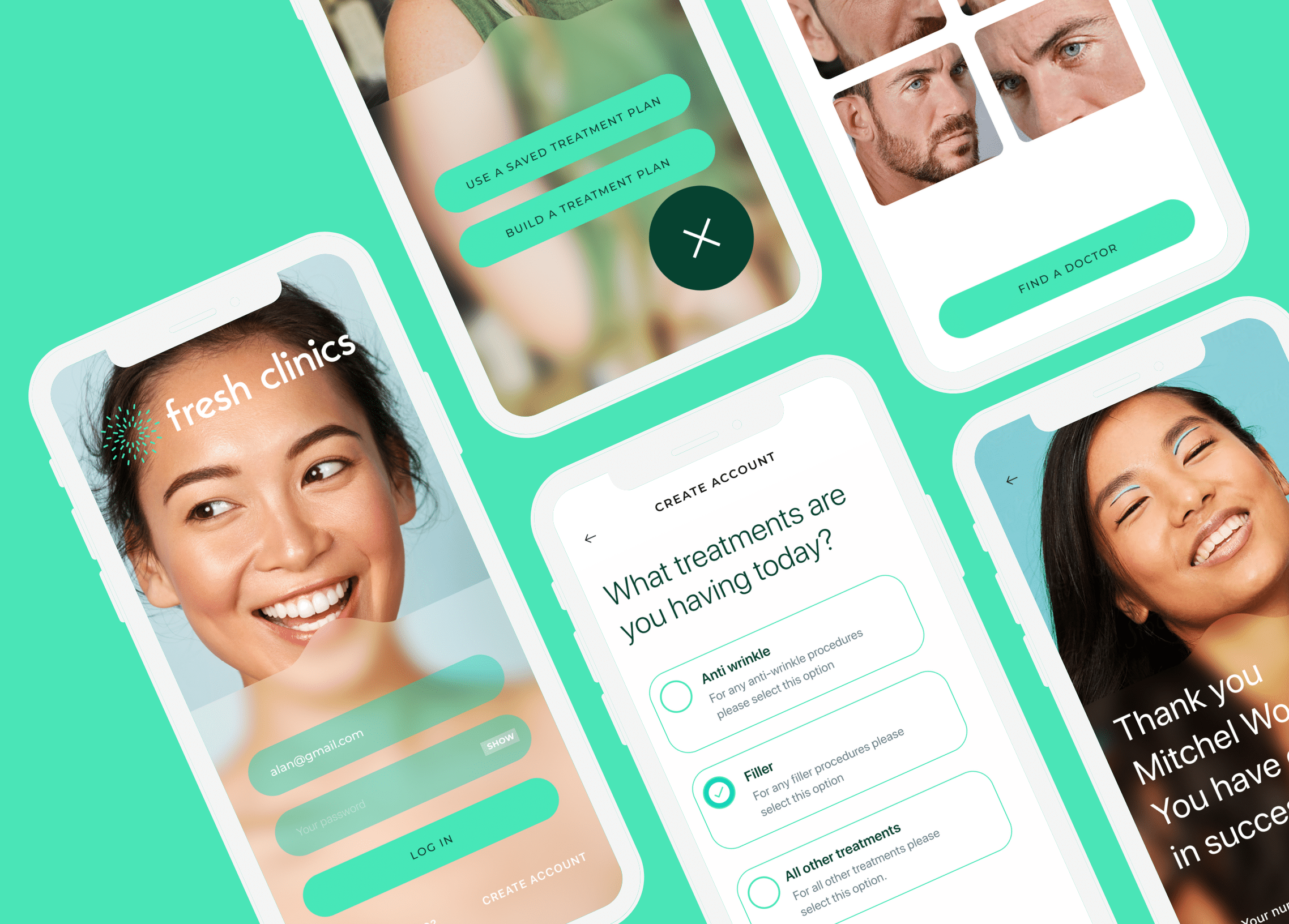The Future of Medical Care: Why Clinics Need a Mobile Application Today
As the healthcare landscape proceeds to develop, clinics encounter mounting pressure to adjust to individual assumptions for greater comfort and accessibility. The combination of mobile applications can function as an important approach for boosting person engagement and enhancing procedures. By leveraging modern technology to boost interaction and offer essential services, facilities not only address present demands however also place themselves for future success. The ramifications of this change prolong beyond mere operational effectiveness; they could redefine person relationships and care distribution in profound methods. What might this transformation appear like for both people and centers?
Transforming Patient Assumptions
As the landscape of medical care develops, person expectations are undergoing a significant improvement. Today's people are progressively seeking convenience, ease of access, and customized treatment.
Moreover, individuals are ending up being extra educated and empowered, typically researching therapies and problems on-line before appointments. This heightened awareness is coupled with a need for openness in healthcare procedures, including price estimates and therapy choices. As a result, companies are urged to adapt by embracing digital tools that boost the individual experience.
The expectation for efficient and prompt communication has never been greater, with many patients taking into consideration responsiveness a critical part of quality treatment. mobile app for clinics. In this advancing landscape, healthcare organizations have to acknowledge these transforming expectations and take advantage of mobile applications to cultivate a much more patient-centric strategy, making sure that they not only satisfy however exceed the standards set by today's educated customers
Enhancing Client Involvement

Mobile applications promote communication in between people and doctor, making it possible for real-time visit organizing, suggestions for drug adherence, and direct messaging functions. These capabilities not just boost comfort yet likewise construct a feeling of accountability amongst patients. Furthermore, mobile applications can supply educational content tailored to private requirements, helping patients better recognize their problems and treatment alternatives.
The combination of gamification components within medical care applications can additionally motivate patients to engage in healthy behaviors, enhancing positive way of living adjustments. Ultimately, enhancing person interaction with mobile applications leads to boosted health end results, greater individual complete satisfaction, and a more collaborative health care experience.
Simplifying Clinic Procedures
Simplifying facility procedures is necessary for boosting process efficiency and optimizing individual care. The implementation of mobile applications can considerably decrease management burdens, enabling doctor to focus more on client interactions. By automating appointment organizing, individual check-ins, and billing procedures, clinics can minimize wait times and improve general operational performance.
Mobile applications likewise facilitate real-time accessibility to individual records, allowing healthcare specialists to make enlightened decisions promptly. This immediacy not only improves the high quality of treatment however additionally decreases the likelihood of mistakes related to misplaced or outdated details. Leveraging mobile technology sustains a much more organized technique to taking care of client follow-ups and therapy plans, making sure that no important actions are ignored.
This permits for timely replenishment and look at these guys helps stay clear of interruptions in patient treatment due to equip lacks. By integrating these performances right into their everyday operations, centers can create a more cohesive and effective environment, eventually leading to boosted individual results and complete satisfaction.
Improving Interaction Networks
Reliable communication is often pointed out as a cornerstone of quality health care distribution. In today's fast-paced clinical environment, mobile applications can dramatically improve interaction channels between facilities, clients, and medical care carriers. By integrating mobile applications right into their operations, facilities can help with real-time interactions, ensuring that individuals receive prompt info regarding their appointments, examination outcomes, and treatment strategies.
Mobile apps additionally equip clients to interact directly with their medical care teams via safe and secure messaging features. This direct line of interaction fosters a sense of engagement and permits instant information of issues, which can lead to far better adherence to therapy procedures. Push alerts can advise patients of upcoming appointments or medication routines, decreasing no-show rates and improving overall health and wellness end results.

Remaining Affordable in Medical Care
In a rapidly advancing medical care landscape, companies need to focus on advancement and versatility to preserve a competitive edge. The assimilation of mobile applications into medical care solutions is no more optional; it is important for facilities aiming to improve client interaction, enhance procedures, and boost overall solution delivery.
As clients progressively depend on electronic platforms for health monitoring, facilities that stop working to adopt mobile technology danger dropping behind. A properly designed mobile application can use features such as visit scheduling, telemedicine consultations, and access to clinical documents, offering individuals with ease and fostering commitment.

Competitors are likewise investing in mobile options, so staying in advance needs continuous renovation and remaining notified concerning technical innovations. Centers should not only implement mobile applications however also take part in normal updates and refinements. Ultimately, the effective assimilation of mobile innovation will identify forward-thinking medical care organizations and established the standard for patient-centric care in an electronic world.
Conclusion
In verdict, the assimilation of mobile applications in centers is vital to resolve the developing landscape of client expectations. Ultimately, the calculated implementation look at more info of mobile apps represents an important step towards supplying tailored and easily accessible healthcare, thereby satisfying the demands of today's encouraged patients.
Inevitably, boosting client interaction you could try this out with mobile applications leads to improved health end results, greater patient contentment, and an extra collective health care experience.Mobile apps likewise promote real-time access to patient records, enabling healthcare professionals to make enlightened decisions promptly. In today's fast-paced medical setting, mobile applications can significantly improve interaction networks between clinics, individuals, and health care suppliers.Mobile apps also empower individuals to interact directly with their healthcare teams via secure messaging functions. Eventually, the critical implementation of mobile apps stands for a critical action toward supplying personalized and easily accessible health care, consequently satisfying the demands of today's equipped individuals.